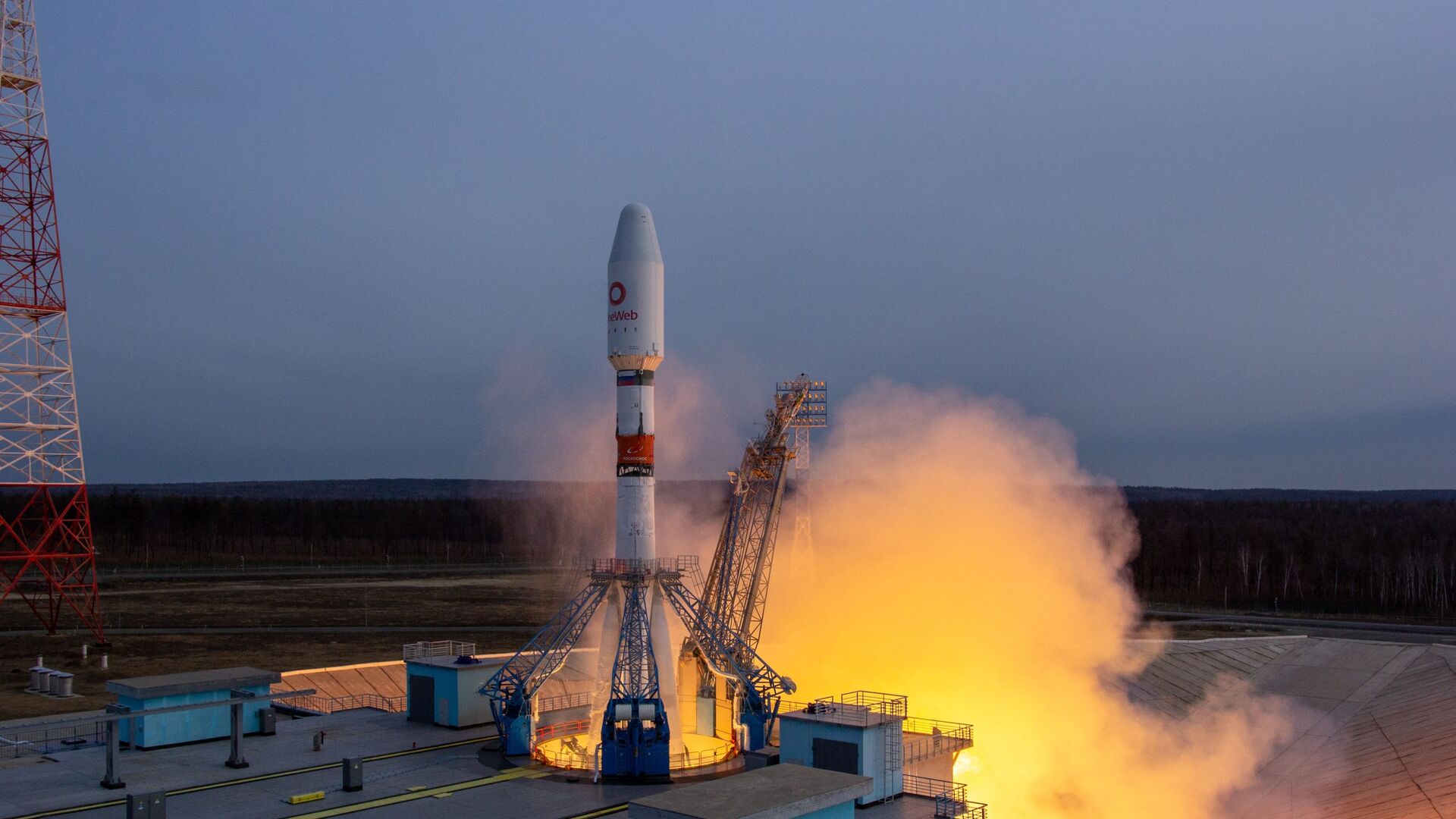https://sputnikglobe.com/20221010/soyuz-rocket-with-glonass-k-navigation-satellite-launched-from-plesetsk-1101676714.html
Soyuz Rocket With Glonass-K Navigation Satellite Launched From Plesetsk
Soyuz Rocket With Glonass-K Navigation Satellite Launched From Plesetsk
Sputnik International
MOSCOW (Sputnik) - A Soyuz-2.1b carrier rocket with Russian navigation satellite Glonass-K was successfully launched from the Plesetsk cosmodrome, a Russian... 10.10.2022, Sputnik International
2022-10-10T09:56+0000
2022-10-10T09:56+0000
2022-10-10T10:01+0000
russia
soyuz-2.1b
glonass-k
https://cdn1.img.sputnikglobe.com/img/07e5/04/1a/1082727808_0:0:3091:1739_1920x0_80_0_0_3008cf04613416d63397fa7f07573c67.jpg
"On Monday, October 10, at 05:52 Moscow time [02:52 GMT], a Soyuz-2.1b medium-class carrier rocket with the Glonass-K navigation spacecraft was successfully launched from the State Test Cosmodrome of the Russian Defense Ministry (Plesetsk Cosmodrome) in the Arkhangelsk Region," the spokesperson said.According to the defense ministry, all pre-launch procedures were carried out in regular mode. At around 05:54 Moscow time, the Soyuz rocket with the Glonass-K satellite was taken into control by the ground-based Titov center run by the Russian Space Forces, the Russian defense ministry spokesperson said. The spokesperson added that the Fregat upper stage with the Glonass-K satellite successfully separated from the Soyuz-2.1b rocket at 06:01 Moscow time.The navigation satellite Glonass-K was successfully put into orbit at the appointed time, the ministry said later in the day.There are currently 26 satellites in Russia's Glonass constellation, with 22 of them operational and one in maintenance. The previous Glonass-K satellite was launched into orbit on July 7. Glonass-K has a 10-year guaranteed service life and versatility. In addition to sending navigation signals, these spacecraft are also capable of transmitting information from the emergency beacons of the International Cospas-Sarsat Programme, a space facility that detects and locates emergency signals of aircraft in remote areas.
Sputnik International
feedback@sputniknews.com
+74956456601
MIA „Rossiya Segodnya“
2022
Sputnik International
feedback@sputniknews.com
+74956456601
MIA „Rossiya Segodnya“
News
en_EN
Sputnik International
feedback@sputniknews.com
+74956456601
MIA „Rossiya Segodnya“
Sputnik International
feedback@sputniknews.com
+74956456601
MIA „Rossiya Segodnya“
soyuz-2.1b, glonass-k
Soyuz Rocket With Glonass-K Navigation Satellite Launched From Plesetsk
09:56 GMT 10.10.2022 (Updated: 10:01 GMT 10.10.2022) MOSCOW (Sputnik) - A Soyuz-2.1b carrier rocket with Russian navigation satellite Glonass-K was successfully launched from the Plesetsk cosmodrome, a Russian Defense Ministry spokesperson told reporters on Monday.
"On Monday, October 10, at 05:52 Moscow time [02:52 GMT], a Soyuz-2.1b medium-class carrier rocket with the Glonass-K navigation spacecraft was successfully launched from the State Test Cosmodrome of the Russian Defense Ministry (Plesetsk Cosmodrome) in the Arkhangelsk Region," the spokesperson said.
According to the defense ministry, all pre-launch procedures were carried out in regular mode. At around 05:54 Moscow time, the Soyuz rocket with the Glonass-K satellite was taken into control by the ground-based Titov center run by the Russian Space Forces, the Russian defense ministry spokesperson said. The spokesperson added that the Fregat upper stage with the Glonass-K satellite successfully separated from the Soyuz-2.1b rocket at 06:01 Moscow time.
The navigation satellite Glonass-K was successfully put into orbit at the appointed time, the ministry said later in the day.
There are currently 26 satellites in Russia's Glonass constellation, with 22 of them operational and one in maintenance. The previous Glonass-K satellite was launched into orbit on July 7. Glonass-K has a 10-year guaranteed service life and versatility. In addition to sending navigation signals, these spacecraft are also capable of transmitting information from the emergency beacons of the International Cospas-Sarsat Programme, a space facility that detects and locates emergency signals of aircraft in remote areas.


